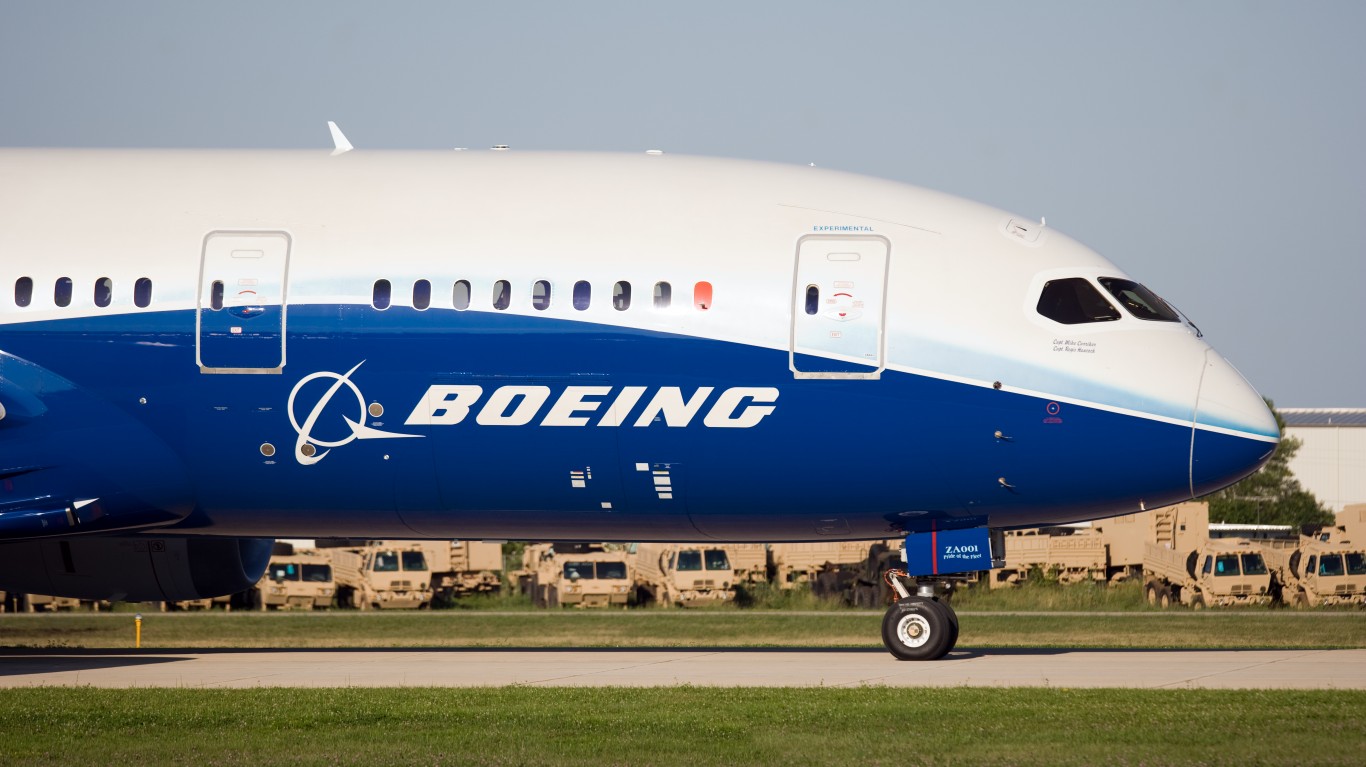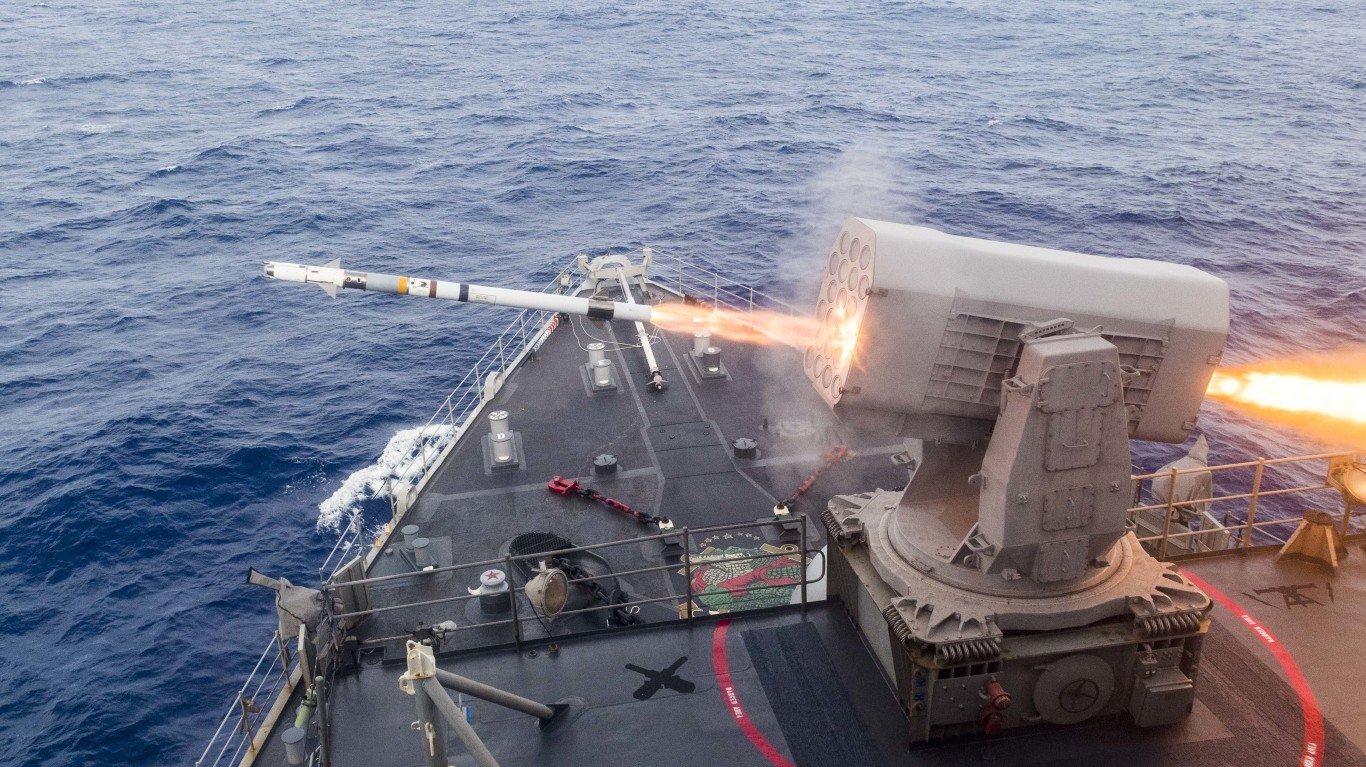

For every action, there is supposed to be an equal reaction. That said, nothing seems to be equal in the world of investing these days in the new coronavirus-induced economic panic. America’s greatest companies are now having to grapple with hard times in an insta-recession, and some of the great companies are suddenly even facing a risk of failure. One such company is The Boeing Co. (NYSE: BA) and it has announced some drastic measures to conserve capital while the company is seeking a massive government aid package.
On Friday evening, Boeing issued a formal release confirming that the aerospace and defense giant has made several decisions to help support the company while it tries to navigate through the COVID-19 pandemic so that it can be there for the eventual recovery.
The most prominent issue is that Boeing said it will suspend its dividend until further notice. The effort to cut the dividend was obviously the right decision when it comes to capital preservation. That said, there may have been two critical issues that are being overlooked here. The immediate issue, the reaction, is potentially going to come from income funds who have been large holders. Those income funds may be forced into selling Boeing entirely now, and that’s at a time when Boeing shares have already been more than disappointing.
On top of no dividend, Boeing has also suspended all stock buybacks. This was an obvious no-brainer, although Boeing had stopped repurchasing its own stock in the first half of 2019 while it was in the midst of dealing with two fatal 737 MAX planes.
Another point that Boeing is doing right in its capital saving plan is that CEO Dave Calhoun and Chairman of the Board Larry Kellner are working for free through 2020.
Boeing’s announcement on Friday also noted that the company is “drawing on all of its resources to sustain operations, support its workforce and customers, and maintain supply chain continuity through the COVID-19 crisis and for the long term.” Boeing had increased its credit facilities to $13 billion earlier in the year and it recently drew down its credit line.
What Boeing has not announced is the expected job cuts that are sure to come, and those cuts are with an aid package or without. If it is the “without aid” scenario, those cuts are likely to be far deeper. 24/7 Wall St. already identified how those cuts are likely to fit within a conservative 1.2 million high-profile company layoffs that are likely coming in the days and weeks ahead. In Boeing’s prior spending cuts it included a hiring freeze, and those workers who had been reassigned from their 737 MAX roles now may have no work to do at all since every airline in the world is now facing financial pressure with airline ticket demand down worse than after the 9/11 terror attacks of 2001.
As far as what Boeing should have done with its dividend cut, it should have taken its dividend down to 1-penny per share. Many ETFs and mutual funds which own “income stocks” may be mandated to unload Boeing shares ahead if there is not a magic rapid resumption of the dividend. For some history from the Great Recession and Financial Crisis of 2008 and into 2009, when the major banks were forced to cut their dividends to conserve cash and as part of the bailout conditions, the dividends went down to $0.01 per share per quarter at BofA, Citi, Regions and other troubled banks of the time. JPMorgan and Wells Fargo were allowed to keep their dividends at 5-cents because they were healthier. Even with the bailout conditions, it was assumed there would only be more forced institutional selling in the banks if there was a zero-payout given.
To say that Boeing mismanaged its 737 MAX woes would be an understatement. They even fired their prior CEO over the matter. That said, Boeing was still a financially sound company with financially sound airline customers coming into 2020. The coronavirus changed all of that, and now airline customers are cutting capex and whatever Boeing said its backlog of plane orders was in the past can be completely disregarded. Boeing also recently lost Nikki Haley from the board of directors, after she resigned over disagreeing that the company should seek a government bailout.
Boeing shares closed down 2.76% at $95.01 on Friday, down from a 52-week high of $398.66 and down from a prior all-time high of almost $450 from earlier in 2019.
Boeing will not be the last high-profile dividend cut in this insta-recession.
Sponsored: Want to Retire Early? Here’s a Great First Step
Want retirement to come a few years earlier than you’d planned? Or are you ready to retire now, but want an extra set of eyes on your finances?
Now you can speak with up to 3 financial experts in your area for FREE. By simply clicking here you can begin to match with financial professionals who can help you build your plan to retire early. And the best part? The first conversation with them is free.
Click here to match with up to 3 financial pros who would be excited to help you make financial decisions.
Thank you for reading! Have some feedback for us?
Contact the 24/7 Wall St. editorial team.

